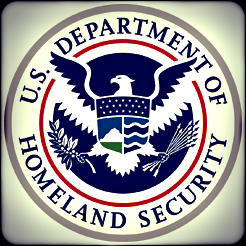I was among a small group of immigration hawks who met with Homeland Security Secretary Jeh Johnson yesterday. (He met separately with family members of Americans killed by illegal aliens, including from The Remembrance Project.)

The secretary's office likely agreed to the meeting, which came at my office's request, as part of its review of deportation policies ordered by the president. I'm under no illusion that our comments will change the outcome of the review in any way, but it was still worth doing.
One of the points I stressed was the insufficiency of the department's enforcement priorities. Unless an illegal immigrant falls into one of three priorities, "your odds of getting deported are close to zero," in the words of the recently departed head of Immigration and Customs Enforcement. Priority 1 is "Aliens who pose a danger to national security or a risk to public safety" — terrorists and criminals (though ICE released 68,000 convicted criminals last year). Priority 2 is "Recent illegal entrants," which the White House wants to redefine as only those who came in the prior two weeks. And Priority 3, "Aliens who are fugitives or otherwise obstruct immigration controls" covers people who sneak back in after deportation (which is a felony) and those who go on the lam after being ordered deported (of whom there are close to 900,000). There have been suggestions that this last priority might simply be eliminated as part of the ongoing deportation review, though Johnson scoffed at the idea.
My point was this — priorities and discretion are necessary in any law-enforcement agency and, indeed, in any area of life. But enforcement priorities can actually hamper enforcement when people falling under those priorities are the only people who have to worry about the rules. State troopers, for instance, will obviously prioritize the pursuit of a burning semi careening across the highway or a van containing gunmen firing on a playground. But if those are the only people who have to worry about traffic laws, then the deterrent for regular drivers to obey the speed limits and other traffic laws evaporates. Likewise with taxes; the IRS obviously places a high priority on going after money-laundering mobsters, terrorist financiers, and other malefactors. But there are still random audits and other enforcement, to serve as a deterrent to illegal tax-avoidance by regular people.
But under the current administration, there is basically no random enforcement of immigration law. Which is to say there's little to deter a regular foreigner, who's not a terrorist or drug dealer, from entering or remaining illegally. And that's why there's a surge of Central American illegal immigration in South Texas and why Mexican illegal immigration is also picking back up.
So whatever enforcement priorities DHS (or any other agency) adopts, one of those priorities has to be enforcing the rules against a non-trivial number of people who don't fall under the other priorities. Otherwise, the law is just for show.
